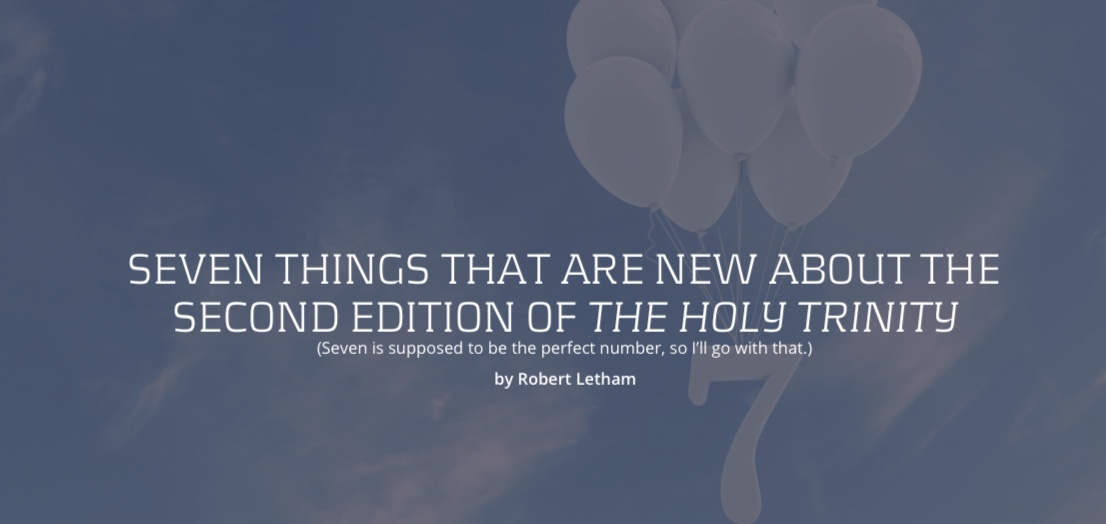
1. Interaction with a vast quantity of scholarship produced in the intervening fifteen years
This is particularly pertinent following the seminal contributions to patristic scholarship of Lewis Ayres. While there is nothing major here that requires massive changes to what I wrote before it is nevertheless of great value in developing our grasp of what the fourth century controversies were about.
2. Re-evaluation of the relationship between the Eastern and Western approaches to the Trinity
Since 2003 there has been a trend to minimise differences between the Eastern and Western churches. Ecumenical considerations have played a part in this but it is also salutary to acknowledge that there is far more that unites than divides. Nevertheless, the differences that exist are real. I have assessed these developments elsewhere but here I attempt to do justice to both sides of the question.
3. A substantial excursus on the Reformed doctrine of the pactum salutis
In the first edition, Calvin apart, I left Reformed developments aside. These were covered in encyclopedic fashion by Richard Muller. However, such an excursus is now present because the pactum salutis was a new and distinctively Reformed development. I have made criticisms of some of the ways it has been treated in the past, and in this section I evaluate these and other matters related to the question.
4. Consideration of the debate on whether election is prior to the Trinity in Barth and in reality
In the last decade or so, there has been a heated debate among Barth scholars over whether he understands election to be prior to the Trinity. Does God elect to be triune? Or is he triune prior to electing? This has implications not only for understanding Barth but also for our grasp, such as it is, of the relation between the Trinity and election. It brings to the surface seemingly arcane but nevertheless far-reaching issues.
5. Extensive discussion of the evangelical controversy
Many will be familiar with the online flare-up in 2016. Here I give a lengthy, deliberate and wide-ranging assessment, while taking into consideration the wider context of Trinitarian and Christological doctrine. I deal with the whole question, without naming names, so as to present an evaluation that is not side-tracked by personal issues.
6. General updates that interact with and reference important new work
Since a lot has been written since 2003 on the Trinity and on topics that are relevant to what I produced, I make a lot of references to books and articles that have appeared since that time. Many of these are in the footnotes, and there are also suggestions for further reading, together with links to a glossary.
7. Consideration of the intriguing proposals of Matthew Bates on biblical exegesis as it affects Trinitarian theology
Bates has set the cat among the pigeons with his arguments about the exegesis of the apostles and the early church, based on how the Bible itself deals intertextually with earlier material. In particular he has highlighted passages in the Old Testament that invite us to witness intra-Trinitarian dialogue relating to events in human history that were to occur at a time later than that in which the biblical author was living. These proposals have been described as “ground- breaking,” although, if Bates is correct, they are ancient ones that are sanctioned by the Bible and the fathers.
The Holy Trinity: In Scripture, History, Theology, and Worship; Revised and Expanded by Robert Letham


Comments